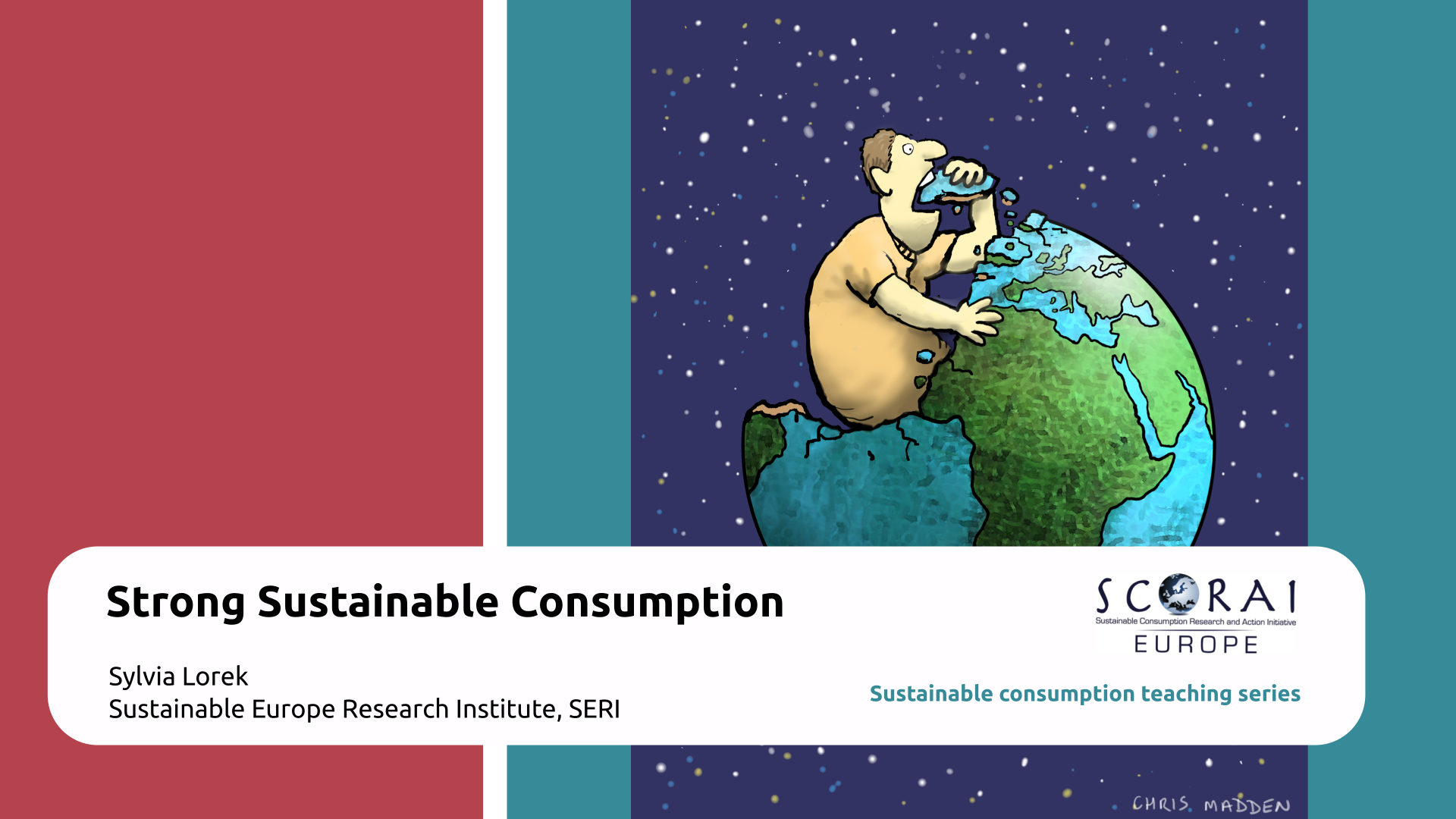By Sylvia Lorek, Sustainable Europe Research Institute, SERI
Questions to guide discussions
- What would be some examples of efficiency versus sufficiency?
- Only until recently, the IEA was projecting future energy consumption based on historical demand developments. What are some of the issues in considering demand versus available resources?
- How much of your wellbeing comes from outside of the marketplace? What does that mean in terms of choosing indicators towards prosperity?
Related presentation
- [download id=”3402″]
Biography
 Sylvia Lorek holds a Ph.D. in consumer economics and is trained to work on the interlinkages of the individual micro-economic and the societal macroeconomic perspective in which the scientific and societal discourses about sustainable consumption take place. As head of SERI Germany e.V. she is working on studies and as consultant for national and international organisations. She has a lecturer position at the University of Applied Science in Münster and held classes e.g. at the University of Helsinki, the Baltic University Program (BUP) and the Asia-Europe Foundation University.
Sylvia Lorek holds a Ph.D. in consumer economics and is trained to work on the interlinkages of the individual micro-economic and the societal macroeconomic perspective in which the scientific and societal discourses about sustainable consumption take place. As head of SERI Germany e.V. she is working on studies and as consultant for national and international organisations. She has a lecturer position at the University of Applied Science in Münster and held classes e.g. at the University of Helsinki, the Baltic University Program (BUP) and the Asia-Europe Foundation University.
Sylvia Lorek is an organising member of SCORAI Europe, the Global Research Forum on Sustainable Consumption and Production (GRF-SCP) and the Society for the European Roundtable on Sustainable Consumption and Production (ERSCP).
Recommended reading
Lorek, S. & Spangenberg, J. H. (2014) Sustainable consumption within a sustainable economy – beyond green growth and green economies. Journal of Cleaner Production, 63, 33-44.
Lorek, S. & Fuchs, D. (2013) Strong Sustainable Consumption Governance – Precondition For A Degrowth Path? Journal of Cleaner Production, 38, 36-43.
Fuchs, D. & Lorek, S. (2005) Sustainable Consumption Governance – A History of Promises and Failures. Journal of Consumer Policy, 28, 261-288.
Other resources
Lecture on the same theme by Sylvia Lorek: From green consumerism to strong sustainable consumption, Studium Generale Sustainable Consumption, Ghent University, 27 April 2016

